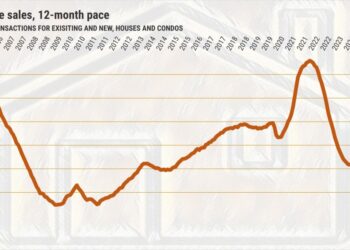People priced out of the California housing market often approach land real estate agent Danielle Davenport with their Plan B.
If they can’t afford an existing house, they’ll buy a piece of land and build, they tell her.
But Davenport, a Bay Area-based land director for Keller Williams California who leads a small team that focuses on commercial, agricultural and residential properties statewide, cautions buyers about investing in vacant parcels as an alternative to housing.
“Building is a great option if it’s your forever home and you have the time, money and resources to make it happen, but it’s not the cheaper option,” Davenport said.
In the Golden State, numerous hurdles stand in the way of construction, provided building a structure is even permitted on the site. It’s a long process that takes about 90 days for due diligence and another 120 days for a purchase to go through. And if it’s not allowed?
“You end up getting stuck with a piece of dirt, and it’s usually because you haven’t worked with an expert,” added Davenport, who has more than 30 years of experience in the field and is a member of the Realtors Land Institute.
The RLI is the leading land real estate organization for sales agents who focus entirely on land.
“We go through exhaustive training because buying land is a huge liability,” Davenport said. “It’s not about square footage and if the bathroom’s been updated, it’s about diving into the nuts and bolts of land use and working with developers. It takes a lot to get through one of these things.”
Southern California News Group recently caught up with Davenport by phone to talk about what buyers should know about development land. The interview has been edited for space and clarity.
Q: How is the economy affecting the price of available land?
A: It really depends on the zoning, what it’s used for and where it’s at.
If it’s zoned for transitional or high-density residential, it’s still pretty…
Read the full article here







